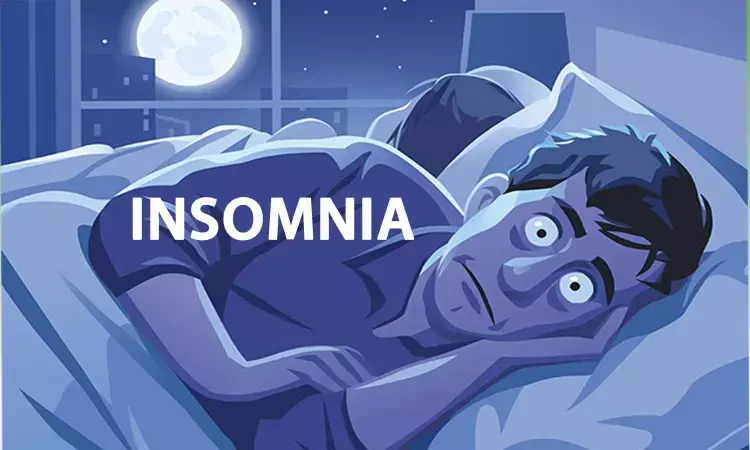- Home
- Medical news & Guidelines
- Anesthesiology
- Cardiology and CTVS
- Critical Care
- Dentistry
- Dermatology
- Diabetes and Endocrinology
- ENT
- Gastroenterology
- Medicine
- Nephrology
- Neurology
- Obstretics-Gynaecology
- Oncology
- Ophthalmology
- Orthopaedics
- Pediatrics-Neonatology
- Psychiatry
- Pulmonology
- Radiology
- Surgery
- Urology
- Laboratory Medicine
- Diet
- Nursing
- Paramedical
- Physiotherapy
- Health news
- Fact Check
- Bone Health Fact Check
- Brain Health Fact Check
- Cancer Related Fact Check
- Child Care Fact Check
- Dental and oral health fact check
- Diabetes and metabolic health fact check
- Diet and Nutrition Fact Check
- Eye and ENT Care Fact Check
- Fitness fact check
- Gut health fact check
- Heart health fact check
- Kidney health fact check
- Medical education fact check
- Men's health fact check
- Respiratory fact check
- Skin and hair care fact check
- Vaccine and Immunization fact check
- Women's health fact check
- AYUSH
- State News
- Andaman and Nicobar Islands
- Andhra Pradesh
- Arunachal Pradesh
- Assam
- Bihar
- Chandigarh
- Chattisgarh
- Dadra and Nagar Haveli
- Daman and Diu
- Delhi
- Goa
- Gujarat
- Haryana
- Himachal Pradesh
- Jammu & Kashmir
- Jharkhand
- Karnataka
- Kerala
- Ladakh
- Lakshadweep
- Madhya Pradesh
- Maharashtra
- Manipur
- Meghalaya
- Mizoram
- Nagaland
- Odisha
- Puducherry
- Punjab
- Rajasthan
- Sikkim
- Tamil Nadu
- Telangana
- Tripura
- Uttar Pradesh
- Uttrakhand
- West Bengal
- Medical Education
- Industry
New AASM guideline suggests use of cognitive behavioral therapy for insomnia in adults

USA: The American Academy of Sleep Medicine (AASM) has released an updated guideline on the treatment of chronic insomnia disorder in adults. The guideline updates the AASM's 2006 practice parameters. It was developed by an expert task force and approved by the AASM board of directors. The process included a systematic literature review, meta-analyses, and assessment of the evidence using the GRADE methodology.
The guideline, published in the Journal of Clinical Sleep Medicine, stresses on the use of multi component cognitive behavioral therapy for insomnia (CBT-I). CBT-I combines cognitive therapies with education about sleep regulation plus behavioral strategies such as stimulus control instructions and sleep restriction therapy. Treatment typically involves four to eight sessions.
Other key recommendations include:
- Clinicians are suggested to use multi-component cognitive behavioral therapy for insomnia for the treatment of chronic insomnia disorder in adults.
- Clinicians are suggested to use multi-component brief therapies for insomnia for the treatment of chronic insomnia disorder in adults.
- Clinicians are suggested to use stimulus control as a single-component therapy for the treatment of chronic insomnia disorder in adults.
- Clinicians are suggested to use sleep restriction therapy as a single-component therapy for the treatment of chronic insomnia disorder in adults.
- Clinicians are suggested to use relaxation therapy as a single-component therapy for the treatment of chronic insomnia disorder in adults.
- Clinicians are not suggested to use sleep hygiene as a single-component therapy for the treatment of chronic insomnia disorder in adults.
"This is the first systematic review to use the GRADE system to evaluate behavioral insomnia therapies," said lead author Jack Edinger, who has a doctorate in clinical psychology and is a professor in the section of sleep medicine at National Jewish Health in Denver. "The multicomponent treatment, cognitive behavioral therapy for insomnia, is the most supported therapy."
"There have been significant advancements in behavioral and psychological treatments for chronic insomnia, which affects millions of American adults," said AASM President Dr. Kannan Ramar. "The AASM guideline will help optimize patient-centered care by providing actionable recommendations for clinicians and patients."
The guideline includes several conditional recommendations — which require the clinician to use clinical knowledge and experience while considering the patient's values and preferences — suggesting that clinicians use multi-component brief therapies and three single-component therapies: stimulus control, sleep restriction therapy, and relaxation therapy. The guideline also suggests that sleep hygiene should not be used as a single-component treatment for chronic insomnia disorder in adults.
"Behavioral and psychological treatments for chronic insomnia disorder in adults: an American Academy of Sleep Medicine clinical practice guideline," is published in the Journal of Clinical Sleep Medicine.
DOI: https://jcsm.aasm.org/doi/10.5664/jcsm.8986
Dr Kamal Kant Kohli-MBBS, DTCD- a chest specialist with more than 30 years of practice and a flair for writing clinical articles, Dr Kamal Kant Kohli joined Medical Dialogues as a Chief Editor of Medical News. Besides writing articles, as an editor, he proofreads and verifies all the medical content published on Medical Dialogues including those coming from journals, studies,medical conferences,guidelines etc. Email: drkohli@medicaldialogues.in. Contact no. 011-43720751


